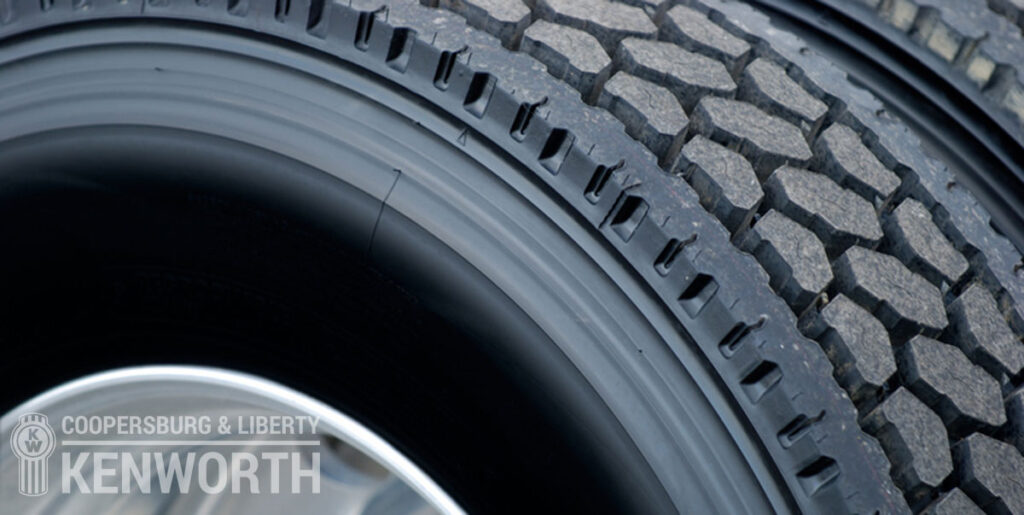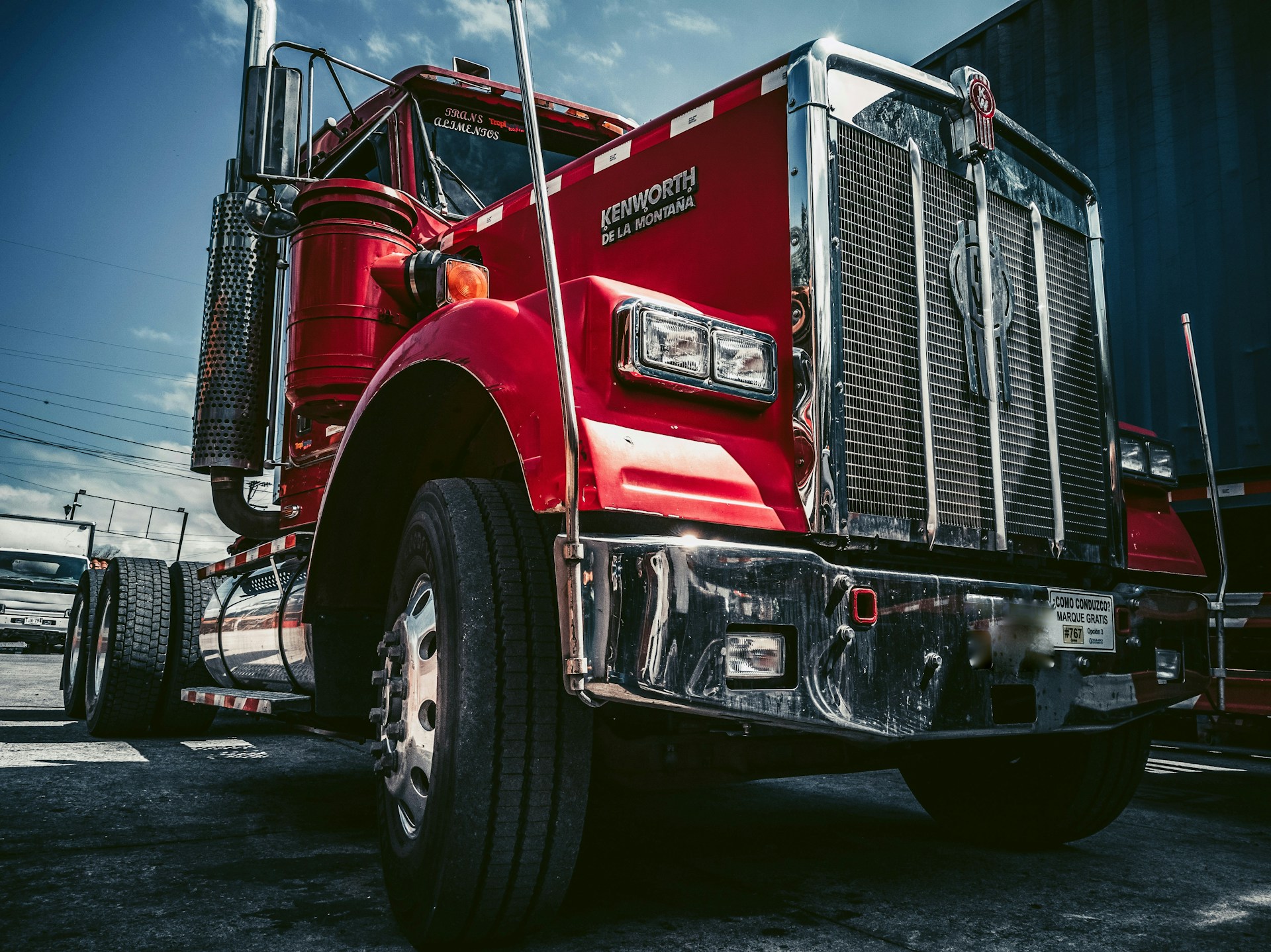
When looking at your semi truck, it’s important to remember that while it may look great on the outside, the tires may tell a different story. Tires are one of the most essential safety components on any commercial truck… and often one of the most overlooked.
At Coopersburg & Liberty Kenworth, we’ve seen plenty of cases where a truck seems “road-ready,” but a closer look at the tires reveals they’re not ready for the journey. Here’s how to tell if your truck tires need replacements before hitting the road.
5 Ways to Know Your Truck Tires Need Replacing
1. Check Tire Pressure Regularly
One of the easiest and most essential maintenance tasks is checking tire pressure. Whether you’re driving in sweltering summer heat or freezing winter temperatures, changes in the weather can cause tire pressure to fluctuate. Underinflated tires reduce fuel efficiency, affect braking performance, and make steering more difficult. Make it a habit to check your semi tire pressure with a reliable gauge and adjust to the manufacturer’s recommended PSI. Regular tire maintenance can help prevent uneven wear, blowouts, and unnecessary fuel costs no matter the time of year.
2. Inspect Tread Depth and Wear Patterns
Tread depth has a direct impact on your truck’s traction and control. Worn-down tread reduces grip and can increase your stopping distance. Uneven tread wear may also point to underlying issues like misalignment or worn suspension parts. To recognize worn or uneven tread, you’ll start to see flat bars become exposed which are perpendicular to the tread. Keeping an eye on your tires keeps your truck safer and more efficient on the road.
3. Look for Cracks, Bulges, and Embedded Debris
Tire damage isn’t always easy to spot, but a thorough visual inspection can reveal serious red flags. Look for cracks along the sidewalls, bulges in the rubber, or embedded objects like nails, glass, or metal fragments, all of which can weaken the tire’s structure. These issues aren’t exclusive to winter or summer – they can happen during any season. If left unchecked, they can lead to air leaks, blowouts, or even total tire failure.
In particularly bad cases, the tire may be so worn down you can see exposed metal from the wires and/or belting reinforcing the tire. If it’s this worn down, it’s absolutely NOT safe to drive and should be replaced immediately.
4. Seasonal Worn Tire Replacements
Worn tires are a year-round safety hazard. Extreme temperatures and heavy loads take a toll on tread life, which is why replacing your semi tires before they show significant wear helps you maintain reliable traction and solid braking in any driving condition. Investing in a high-quality, all-season or application-specific tire ensures increased safety in rain, snow, heat, or frost.
Want the right tires for the right weather? Our Parts Stores can match your truck with the tires you need for the season ahead.
5. Should You Balance the Tires?
If you’re due to replace your truck’s tires, you might want to consider tire balancing. There’s a lot of debate within the truck industry, and even between different tire manufacturers, over whether balancing is worth the extra cost and how much value it provides.
A properly balanced tire setup reduces vibrations, improves driver comfort, and extends tire life. While opinions may differ, most truck experts agree: balancing drive tires is always a smart investment. Steer and trailer tires may benefit less, but it’s still worth considering when doing a full replacement or rotation. Balanced tires contribute to better performance no matter the season.
How Often Should You Replace Your Tires?
For commercial trucks, tire replacement varies based on several factors including mileage, road conditions, load weight, and driving habits. With proper maintenance and regular rotations, tires can achieve a longer lifespan. Consistently checking tread depth, tire pressure, and wear patterns helps prevent issues before they become costly problems.
No matter what time of year it is, keeping your truck tires in good shape is key to staying safe and driving efficiently. A little proactive maintenance goes a long way – helping you avoid unexpected costs, whether you’re driving through spring showers, summer heat, chilly fall mornings, or winter snow.
Get the Latest Trucking News, Tips & More
"*" indicates required fields


